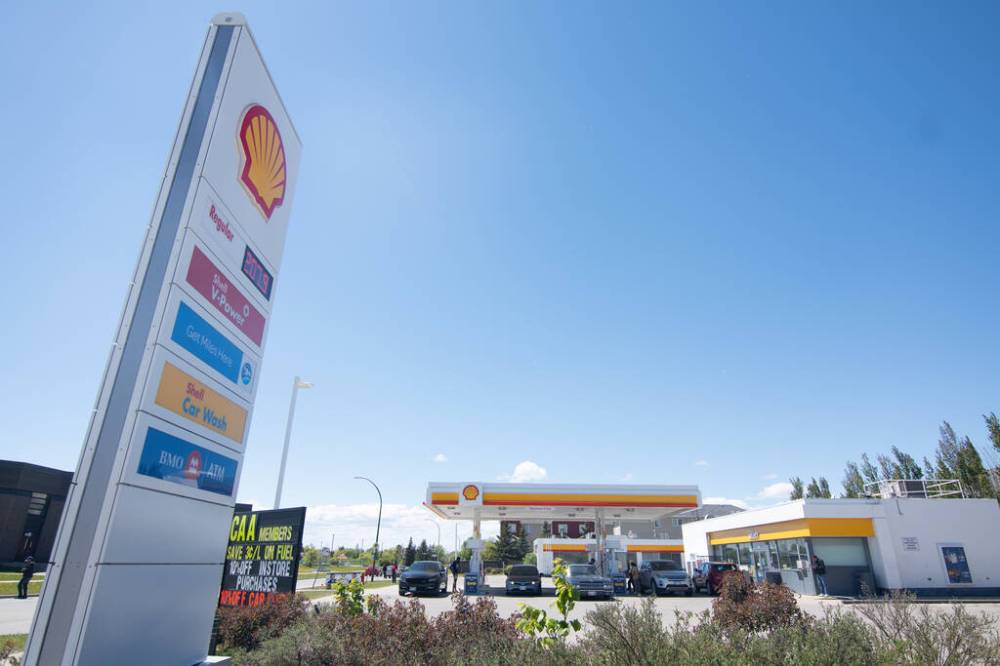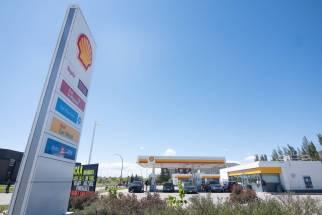Cutting fuel taxes no inflation silver bullet
Read this article for free:
or
Already have an account? Log in here »
To continue reading, please subscribe:
Monthly Digital Subscription
$0 for the first 4 weeks*
- Enjoy unlimited reading on winnipegfreepress.com
- Read the E-Edition, our digital replica newspaper
- Access News Break, our award-winning app
- Play interactive puzzles
*No charge for 4 weeks then price increases to the regular rate of $19.00 plus GST every four weeks. Offer available to new and qualified returning subscribers only. Cancel any time.
Monthly Digital Subscription
$4.75/week*
- Enjoy unlimited reading on winnipegfreepress.com
- Read the E-Edition, our digital replica newspaper
- Access News Break, our award-winning app
- Play interactive puzzles
*Billed as $19 plus GST every four weeks. Cancel any time.
To continue reading, please subscribe:
Add Free Press access to your Brandon Sun subscription for only an additional
$1 for the first 4 weeks*
*Your next subscription payment will increase by $1.00 and you will be charged $16.99 plus GST for four weeks. After four weeks, your payment will increase to $23.99 plus GST every four weeks.
Read unlimited articles for free today:
or
Already have an account? Log in here »
Hey there, time traveller!
This article was published 14/06/2022 (1272 days ago), so information in it may no longer be current.
It would seem logical enough: cut fuel taxes on gasoline and diesel as a way of curbing soaring inflation. It’s something many in the Conservative Party of Canada and others are calling for as a way of wresting inflation to the ground.
However, it’s not quite that simple, at least not under current economic conditions.
There’s little doubt eliminating all fuel taxes would have a significant impact on inflation. In Manitoba, the province charges 14 cents a litre on gasoline and diesel. The federal government charges a 10 cents/L excise tax on gasoline and four cents/L on diesel. Ottawa then applies the GST on top of that — the dreaded “tax on tax.”
In addition, provinces or the federal government charge a carbon tax at the pump. In Manitoba, the federal carbon tax is 11 cents/L. Some cities, including Montreal and Vancouver, charge their own fuel taxes.

All told, governments in Manitoba siphon 35 cents/L in taxes out of motorists’ pockets, and then apply the five per cent GST. If all those taxes were eliminated overnight, gasoline prices at Manitoba pumps would fall from about $2.08/L to $1.63/L — a 22 per cent drop. The estimated savings: $23 on 50-litre tank of gas, a fair chunk of change.
Reducing fuel prices wouldn’t just save money for individuals and families, it would also help small business and not-for-profits make ends meet. It would reduce the cost of transporting goods, too, which would mitigate price increases in grocery stores and other retail outlets. Fuel prices tend to have a cascading effect throughout the economy.
Trouble is, cutting fuel taxes would also rob governments of much-needed revenue. In some cases, governments would have to borrow money to cut taxes (something advocates of tax cuts conveniently ignore when governments run deficits).
In Manitoba, the fuel tax is projected to generate $359 million in revenue this year. If the province suspended the tax for six months, it would lose about $180 million.

Since government is in deficit, finance officials would have to borrow that money (unless they could find $180 million in spending cuts). Such a move would increase Manitoba’s projected deficit to $728 million, up from the current estimate of $548 million — an amount that would get tagged onto the province’s record $30.5-billion debt.
Future generations would have to repay that money, with interest. Higher deficits also contribute to inflation, as governments sell bonds in the market.
The same would apply if the federal excise tax on fuel were suspended. It would have to be financed through borrowing because Ottawa is also in deficit.
Eliminating the federal carbon tax is a different story.
It would be revenue neutral; it could be offset by cancelling the corresponding rebates to Canadians. Government wouldn’t have to go further into debt to cancel the carbon tax.
With prices at the pump skyrocketing to more than $2/L, there is no need for a carbon tax.
The stated objective of putting a price on carbon is to raise prices high enough to discourage the use of fossil fuels. The market is more than taking care of that right now. An artificial price signal is not required. Gas prices have risen well beyond the federal government’s plan to add a $170-per-tonne carbon tax by 2030 (about 37 cents/L). There’s little chance gas prices will return to pre-2021 levels.
Eliminating the federal carbon tax in Manitoba would reduce prices at the pump by 11 cents/L. It would reduce inflation to some degree, but the impact would be minimal.
Eliminating the federal carbon tax in Manitoba would reduce prices at the pump by 11 cents/L. It would reduce inflation to some degree, but the impact would be minimal.
There is no silver bullet to solving Canada’s, or the world’s, inflation problems, despite the rhetoric by some politicians and interest groups there are easy solutions to be had, if governments would only embrace them.
You can’t just “stop printing money” or buy Bitcoin to solve inflation, as federal Conservative party leadership candidate Pierre Poilievre has proposed. Canada can’t tax its way out of inflation either, by jacking up corporate taxes, as others have suggested.
Inflation is a complex economic problem that will only be solved over time through multiple measures and developments, including higher interest rates and improvements in global supply chains. Cutting fuel taxes would have a small impact on inflation in some regions of the country, but it wouldn’t be a panacea.
tom.brodbeck@freepress.mb.ca

Tom has been covering Manitoba politics since the early 1990s and joined the Winnipeg Free Press news team in 2019.
Our newsroom depends on a growing audience of readers to power our journalism. If you are not a paid reader, please consider becoming a subscriber.
Our newsroom depends on its audience of readers to power our journalism. Thank you for your support.











